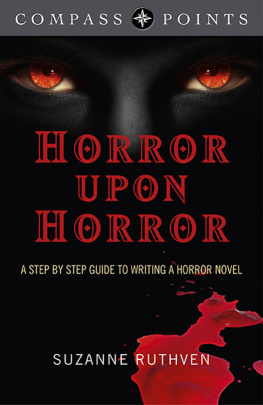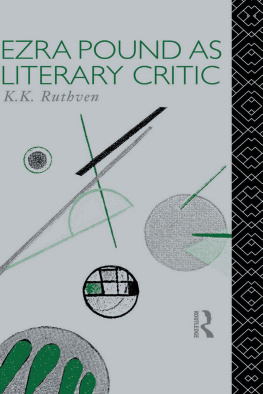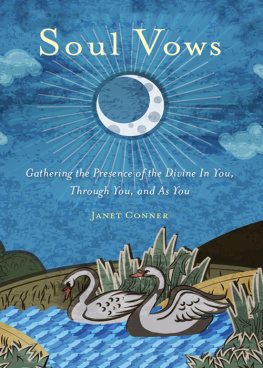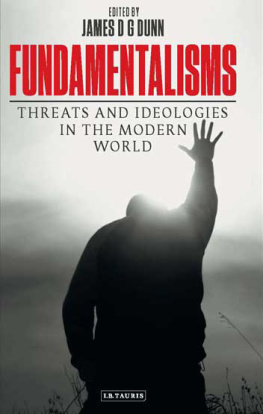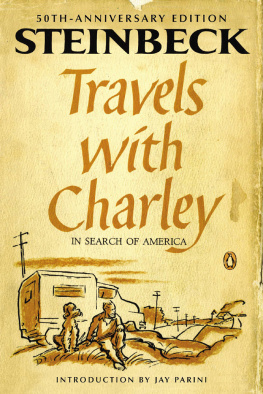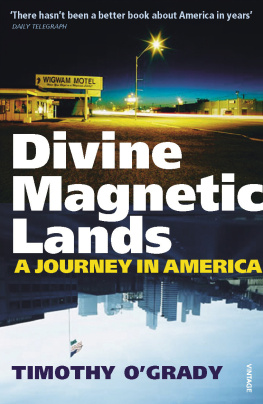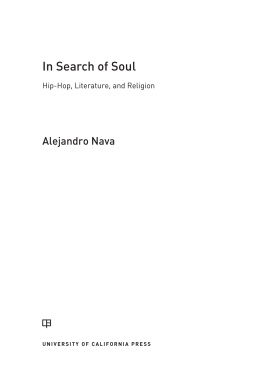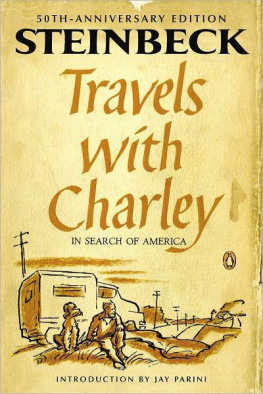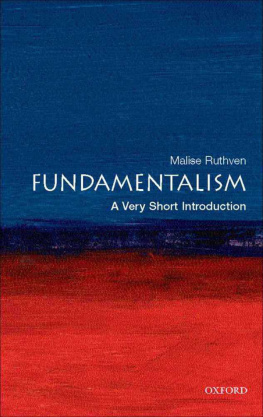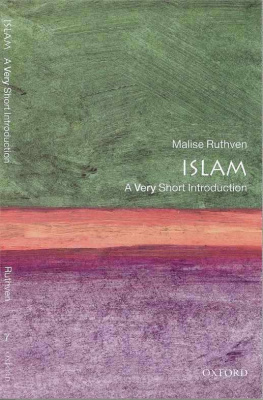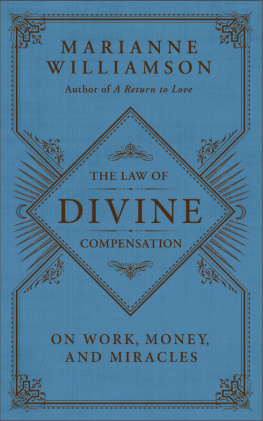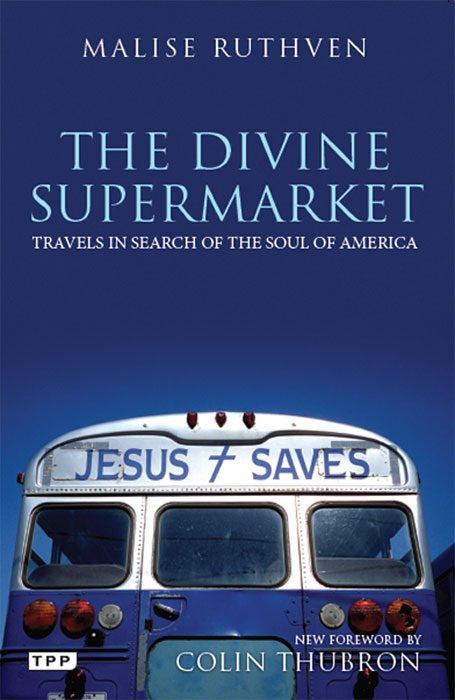Malise Ruthven is a writer and historian of the Islamic world. He has been a scriptwriter with the BBC Arabic and World Services and has taught Islamic Studies and Comparative Religion at the University of Aberdeen, the University of California and at Dartmouth College. He is a frequent contributor to the New York Review of Books , among other publications, and is the author of several books, including Fury for God and Fundamentalism and Encounters with Islam (I.B.Tauris, 2012).
Over the last decade Malise Ruthven has consolidated his position as one of our most consistently stimulating and sophisticated writers on contemporary religion in general.In a crowded field Ruthven remains way ahead of the pack.
William Dalrymple
A perfect and crazy conceptIts a rocking good read and something of a pocket guide to hell.
Time Out
This is a significant travel bookit has clear purpose and is not just a ramble through America. As Ruthven himself describes it, he set out to write a kind of travel book: one that exposes the countrys psyche as well as its social and physical landscapes. He is as good as his word.
William Boyd
Ruthven is a civilised man, sharp-witted and clever, with an impressive mastery of American social and cultural history and he has written a brilliant account of his travels in search of our spiritual byways and backwaters.
Los Angeles Times
Ruthven weaves accurate historical information with firsthand observations, interviews, and his own analysis. A readable book with some fresh insights. Recommended.
Library Journal
Tauris Parke Paperbacks is an imprint of I.B.Tauris. It is dedicated to publishing books in accessible paperback editions for the serious general reader within a wide range of categories, including biography, history, travel and the ancient world. The list includes select, critically acclaimed works of top quality writing by distinguished authors that continue to challenge, to inform and to inspire. These are books that possess those subtle but intrinsic elements that mark them out as something exceptional.
The Colophon of Tauris Parke Paperbacks is a representation of the ancient Egyptian ibis, sacred to the god Thoth, who was himself often depicted in the form of this most elegant of birds. Thoth was credited in antiquity as the scribe of the ancient Egyptian gods and as the inventor of writing and was associated with many aspects of wisdom and learning.

New paperback edition published in 2012 by Tauris Parke Paperbacks
An imprint of I.B.Tauris and Co Ltd
6 Salem Road, London W2 4BU
175 Fifth Avenue, New York NY 10010
www.ibtauris.com
Distributed in the United States and Canada Exclusively by Palgrave Macmillan
175 Fifth Avenue, New York NY 10010
First published in 1989 by Chatto & Windus Ltd
Copyright 1989, 2012 Malise Ruthven
Cover image: St Paul, Minnesota, USA Simon Weller / Getty Images
The right of Malise Ruthven to be identified as the author of this work has been asserted by him in accordance with the Copyright, Designs and Patents Act 1988.
All rights reserved. Except for brief quotations in a review, this book, or any part thereof, may not be reproduced, stored in or introduced into a retrieval system, or transmitted, in any form or by any means, electronic, mechanical, photocopying, recording or otherwise, without the prior written permission of the publisher.
ISBN: 978 1 78076 022 3
eISBN: 978 0 85773 142 5
A full CIP record for this book is available from the British Library
A full CIP record is available from the Library of Congress
Library of Congress Catalog Card Number: available
To Wendy and Hughie
Acknowledgements
T his book could never have been written without the help of a great many people.
First I would like to thank my brother Grey and my sister-in-law Neiti, who not only let me stay in their flat in New York during the preparatory stages of my journey; they also lent me their Welsh retreat where most of the writing was done. Gail and Kevin Buckley were unstinting in providing shelter and hospitality during a crucial and difficult time. My thanks to both for their forbearance, and to Kevin for conscientiously forwarding my mail to various parts of the world. Special thanks are also due to Barbara Smith, who allowed me the use of her home near Washington D.C.; to Marianne Spottiswoode, who had me to stay in Newport, Rhode Island; to Joseph Michenfelder and Laurine Glynn, who entertained me in Brooklyn; to Paul and Suzanne Slade, Frank and Rosemary Bleignier, Alan and Patricia Hamilton and Fanny Howe Senna: all of them had me to stay and helped open my eyes to the varieties of American religious experience.
I am especially indebted to Margaret Heffernan and Isabel Fonseca, who read the whole book in manuscript and came up with useful suggestions for improvements and omissions. I would also like to thank Nancy Ammerman, of Emory University, Atlanta who read the chapters on fundamentalism and Jan Shipps of Indiana University who read those dealing with Mormonism. Both of them put me right on points of detail; neither is responsible for errors of fact or emphasis that remain.
I am also grateful to Jeremy Lewis, my editor at Chatto and Windus, who saw the book go through several drafts and made many useful and constructive suggestions; and to Alan Williams and Andy Dutter of Arbor House who also suggested useful improvements. I thank Carmen Callil for originally supporting this book, and for her patience in waiting for it.
Others to whom I would like to register my thanks include: Owen Allred, Lorrine Ardress, Paul Anderson, Leonard Arrington, Bronwen and Jenny Astor, Robert Balch, Wendel Bird, Davis Bitton, James Bradstock, Betty Brown, Alfred Bush, Jerry Cahill, Caroline Campbell, Kevin Cartwright, Robert Clarke, Ron Clarke, Tom Connolly, John Cooney, Henrietta Crampton, W. A. Criswell, Bill and Linda Custard, Caroline Dawnay, Margaret Douglas-Hamilton, Paul Edwards, Kirk Elifson, Frank and Gee Elliot, Frances FitzGerald, Cornelia and Lukas Foss, Duaine Gish, Angeline Goreau, Tom Green, John Grimond, Jeffrey Hadden, Paul and Mary Hambrecht, Susan Harding, Michael Hathaway, Loran Herbert, Christopher Hansen, Christopher and Eleni Hitchens, James Hunter, Love Israel, Wells Jakeman, Tim LaHaye, Alistair Lack, Don Lefevre, Austin Long, Guy Lytle, Ken Maley, Paul and Olivia Mason, Peter Matson, Dick Mercy, William Lee Miller, Bill Morlin, Margy and Tom Monante, Louis Moor, Fred Myrow, Linda Newell, Alfonzo Ortiz, Elbert Peck, Ellen Plunkett, Florence and Jack Phillips, Paul Quinn, Paul Richard, Alan Roberts, Jeff Rosenberg, Suzannah von der Schulenberg, Deborah Sharpe, Ted Shay, Barnard and Cherry Silvers, John Sorensen, Mark Strand, Richard H. Taber, Bill Wassmuth, Jack Welsh, Robert Wuthnow, Victoria Zinoviev.
John Buchanan and People for the American Way were unstinting in providing documentation, as was the Crystal Cathedral, Garden Grove, California; FARMS, Provo, Utah; the World University of America, Ojai; the Public Communications Department of the Church of Jesus Christ of Latter-day Saints, Salt Lake City; South-Western Theological Seminary, Fort Worth; the Southern Baptist Convention, Knoxville; and Liberty University, Lynchberg.
Katya Cruft, Jim Delaney and The Final Step provided useful secretarial help.
Some names have been changed in the text to protect the identities of the people concerned. To any who would have preferred anonymity, I offer my apologies.


